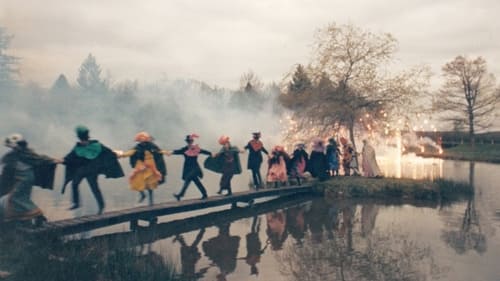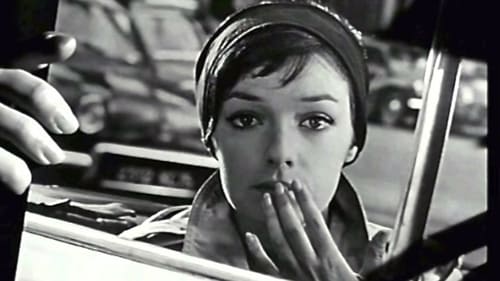Jean-Gabriel Albicocco
Nascimento : 1936-02-15, Cannes, France
Morte : 2001-04-10

Adaptation
Jovem francesa se envolve romanticamente com oficial alemão durante a invasão da França na segunda guerra mundial.

Director
Jovem francesa se envolve romanticamente com oficial alemão durante a invasão da França na segunda guerra mundial.

Director
Serge Menessier has been paid to shoot a reportage on his ex-wife's depression. Now remarried, he has accepted the job to pay his debts and maybe because he is still in love with her, a famous actress whose career he contributed to launch.

Screenplay
Rural France, the 1890s. Always in motion, Augustin wanders three times. First, as a youth, while a boarder near Bourges, he's lost in the woods and finds a chateau where an engagement party's in progress: there he falls eternally in love with Yvonne and she with him. Back at school, he hears she is in Paris, so he follows in a vain search and meets a woman, jilted by her lover. In the countryside a few year's later, Augustin's friend François finds Yvonne and brings Augustin to her. They marry, but the next day, Augustin leaves to fulfill a youthful promise he made to Yvonne's brother. François comforts the pregnant Yvonne as they await Augustin's return.

Director
Rural France, the 1890s. Always in motion, Augustin wanders three times. First, as a youth, while a boarder near Bourges, he's lost in the woods and finds a chateau where an engagement party's in progress: there he falls eternally in love with Yvonne and she with him. Back at school, he hears she is in Paris, so he follows in a vain search and meets a woman, jilted by her lover. In the countryside a few year's later, Augustin's friend François finds Yvonne and brings Augustin to her. They marry, but the next day, Augustin leaves to fulfill a youthful promise he made to Yvonne's brother. François comforts the pregnant Yvonne as they await Augustin's return.

Screenplay
This South American adventure drama finds Charles (Charles Aznavour), a youthful Frenchman traveling to Paraguay to start a new life. Seeking out a rich uncle, the idealistic nephew is rejected by his miserly relation, and he goes on to get involved with a shady woman and a band of gun runners who supply arms for the revolution of the week. Charles and his new girlfriend head for the border after a shootout with federal troops, and a kindly railroad worker hides the couple in an abandoned copper mine. Charles is later thrown in prison while the girl becomes a concubine, but her violator is killed when Charles escapes to rescue her and exact revenge. A pretty harrowing composition could be written by the young couple on "How I Spent My Summer Vacation."

Director
This South American adventure drama finds Charles (Charles Aznavour), a youthful Frenchman traveling to Paraguay to start a new life. Seeking out a rich uncle, the idealistic nephew is rejected by his miserly relation, and he goes on to get involved with a shady woman and a band of gun runners who supply arms for the revolution of the week. Charles and his new girlfriend head for the border after a shootout with federal troops, and a kindly railroad worker hides the couple in an abandoned copper mine. Charles is later thrown in prison while the girl becomes a concubine, but her violator is killed when Charles escapes to rescue her and exact revenge. A pretty harrowing composition could be written by the young couple on "How I Spent My Summer Vacation."

Director
A man becomes obsessed with a woman, who is unreceptive to his advances. Jealous of her attraction to another, he becomes increasingly desperate. His frustration reaches a peak when the woman hints at another liaison.

Editor
A nearly forgotten feature by one of the founders of Lettrism, Closed Vision was the directorial debut of Marc'O (born Marc-Gilbert Guillaumin), editor of the short-lived Lettrist film journal Ion and producer of Jean-Isidore Isou's infamous Traité de bave et d'eternité. Compared to that film or Maurice Lemaitre's Le film est déjà commencé?, Closed Vision is a more literary and downright genial effort. If Isou and Lemaitre were content to "destroy cinema" (exposing ugly, banal images or simply splicing in scratched-up blank leader in semi-conjunction with endless soundtrack harangues), Marc'O here seems almost to save it - or at least to invest serious effort toward finding a cinematic idiom equivalent to the novel's stream-of-consciousness (the subtitle is 'Sixty Minutes in the Interior Life of a Man'). Debuted at the 1954 Cannes Film Festival with endorsements from Jean Cocteau and Luis Buñuel.

Cinematography
A nearly forgotten feature by one of the founders of Lettrism, Closed Vision was the directorial debut of Marc'O (born Marc-Gilbert Guillaumin), editor of the short-lived Lettrist film journal Ion and producer of Jean-Isidore Isou's infamous Traité de bave et d'eternité. Compared to that film or Maurice Lemaitre's Le film est déjà commencé?, Closed Vision is a more literary and downright genial effort. If Isou and Lemaitre were content to "destroy cinema" (exposing ugly, banal images or simply splicing in scratched-up blank leader in semi-conjunction with endless soundtrack harangues), Marc'O here seems almost to save it - or at least to invest serious effort toward finding a cinematic idiom equivalent to the novel's stream-of-consciousness (the subtitle is 'Sixty Minutes in the Interior Life of a Man'). Debuted at the 1954 Cannes Film Festival with endorsements from Jean Cocteau and Luis Buñuel.









